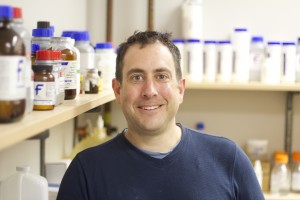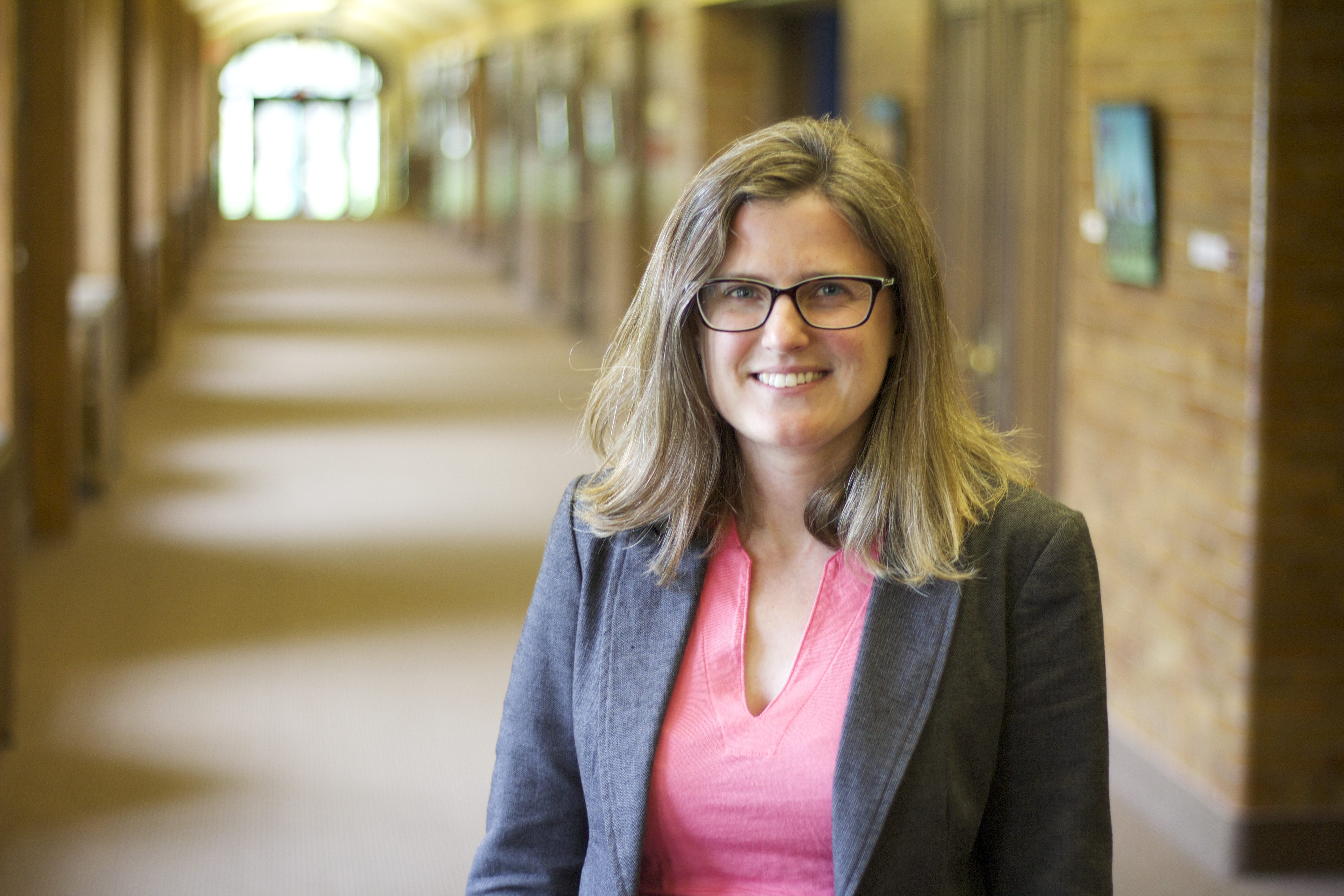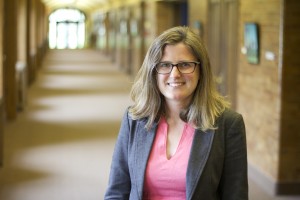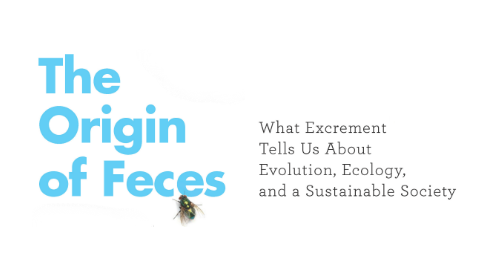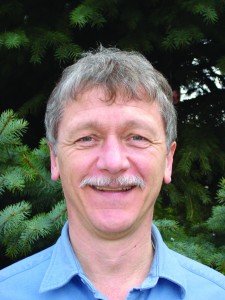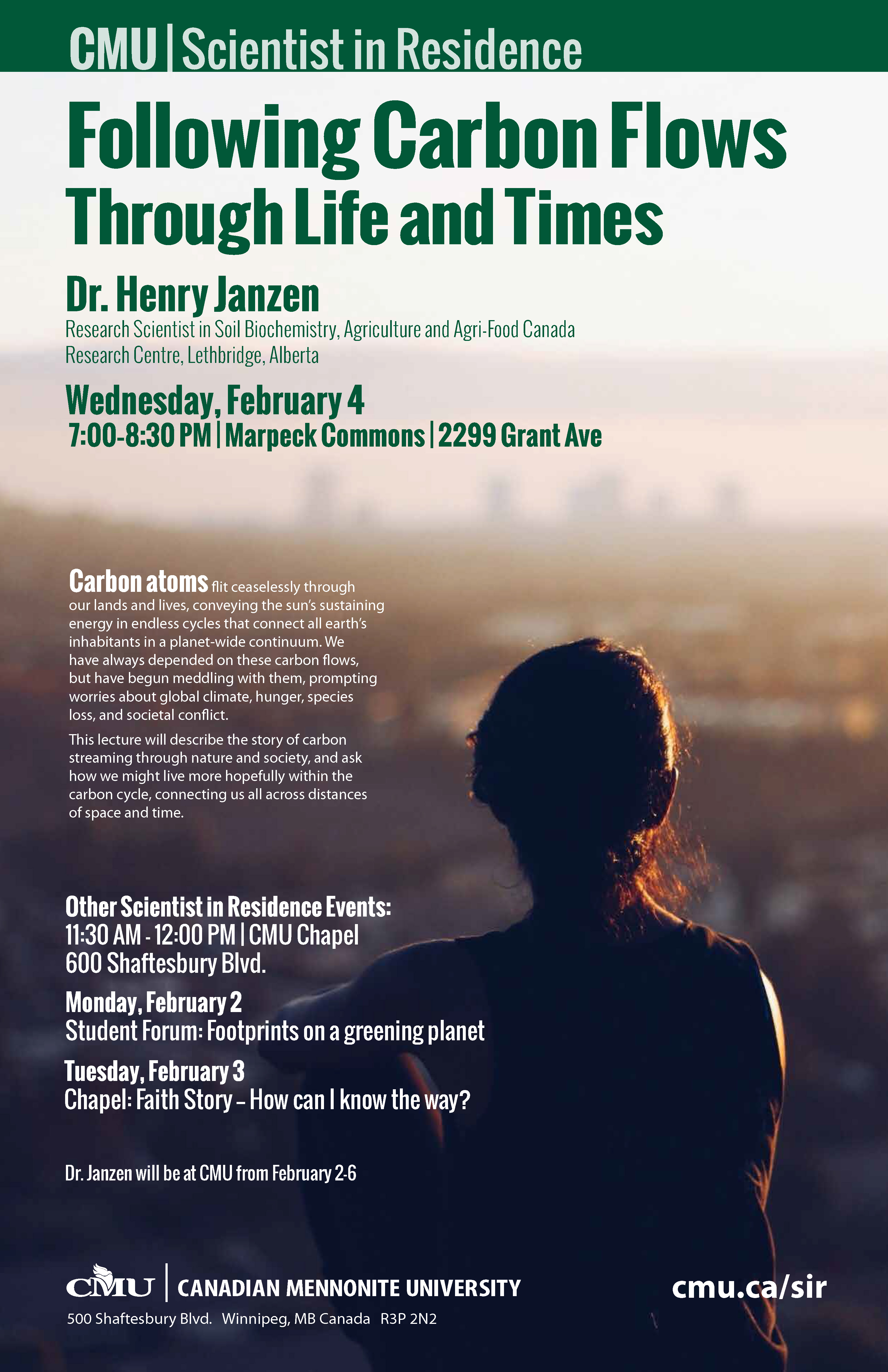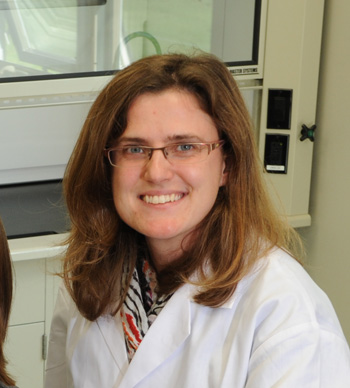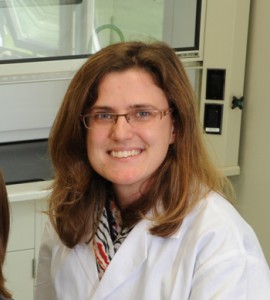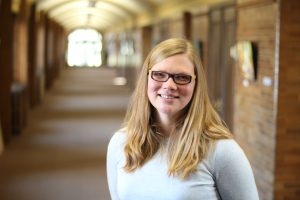 Dr. Rachel Krause, Assistant Professor of Biology, has taught at CMU since 2015.
Dr. Rachel Krause, Assistant Professor of Biology, has taught at CMU since 2015.
What are you teaching right now that you’re most excited about?
A first-year course called The Evolutionary and Ecological Revolution. Part of the course is based in the Assiniboine Forest. We had a field trip out there with naturalists from the city, and now students are spending the whole semester in the forest, thinking about it and learning about it individually. I spend a lot of time in the forest because I want to know what’s going on there, too. I love that going to the forest is part of my curriculum.
What are you researching and writing?
I’m finishing a project in Panama on food security and child growth. I also have an ongoing collaboration in Panama on wildlife parasitology and human health, and I recently started working with a research scientist with fisheries and oceans here in Manitoba, working on the Carmine shiner, which is a threatened species in the province. It’s a little, tiny fish that is found in a few rivers here. We’re doing a study of parasites in the fish, and also looking at how parasite infection influences metabolic rate and sensitivity to temperature changes, kind of with climate change in mind.
What you are reading for enjoyment?
During the school year, I tend to just read fun things, so I’m reading a P.D. James murder mystery right now. Something with “Murder” or “Blood” in the title—I don’t remember. (laughs)
Where or how do students give you hope?
They care. Many of them are really invested in connecting the things they’re studying to the other parts of their lives. To me, the things that I teach matter, so to see students pick up on that and try to work it into how they live their lives is really rewarding for me.
Do you have any interesting projects underway in the broader community or church?
I’m part of a project spearheaded by Jobb Arnold, Assistant Professor of Conflict Resolution Studies at Menno Simons College. This project brings together youth from a couple of Winnipeg high schools that have a lot of Indigenous and newcomer youth. The youth learn about climate change, but really, the intention is to build community, and build connections and relationships. Jobb teaches conflict resolution, so he’s all about building resilient communities in the face of something like climate change. I went along with them on a field trip to Shoal Lake 40 to talk about water stewardship. It’s been a lot of fun to be a part of that, and to use my expertise as an ecologist to help facilitate a part of this larger network of learning for these youth.
What saying or motto inspires you?
A few years ago, I heard a sermon and the speaker made a comment about how it’s OK for us to be imperfect, because that gives people around us the permission to be imperfect. I’m trying to embrace that as part of my mentorship to students. For them to see me as imperfect gives them permission to be themselves and not have to be perfect, either.

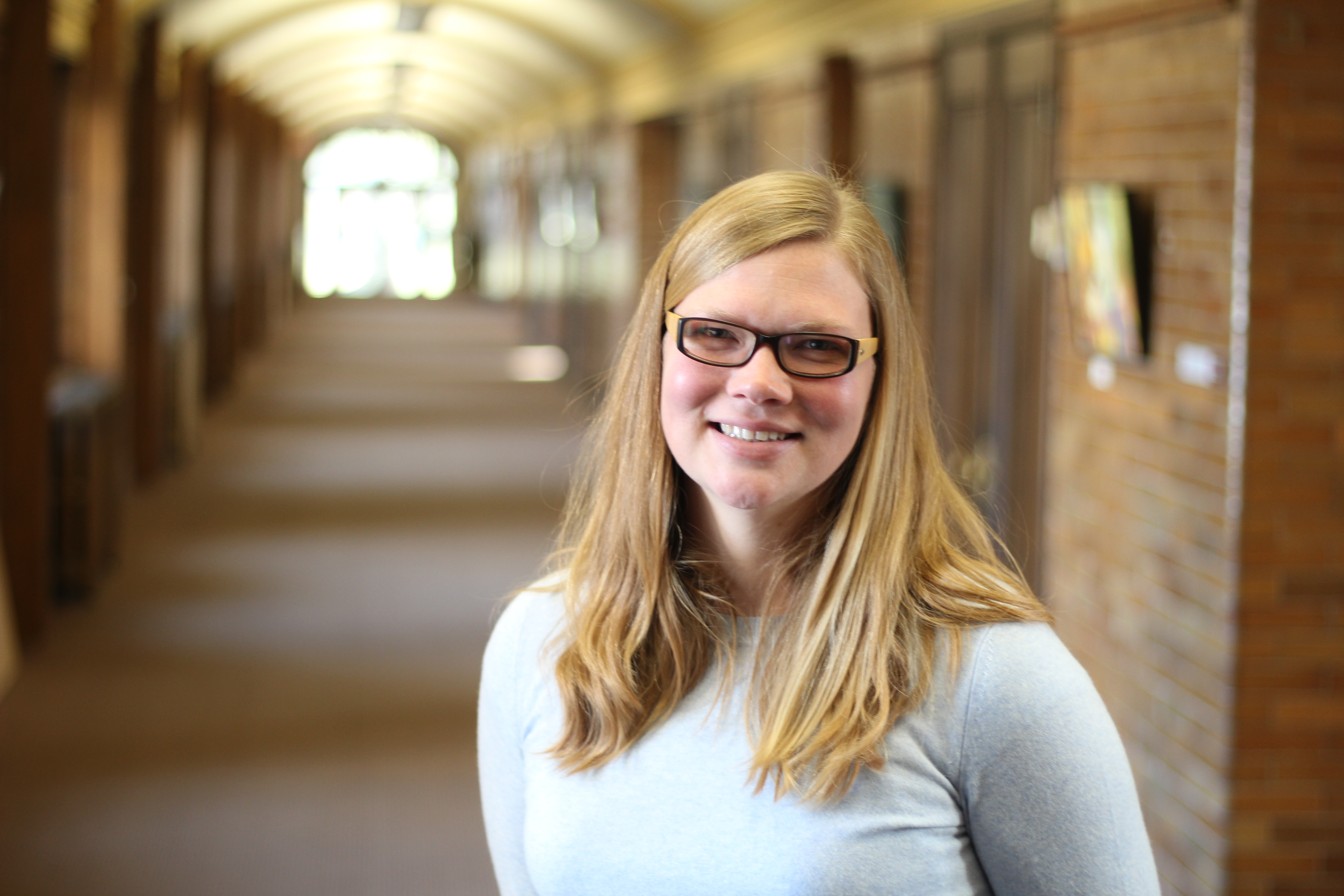
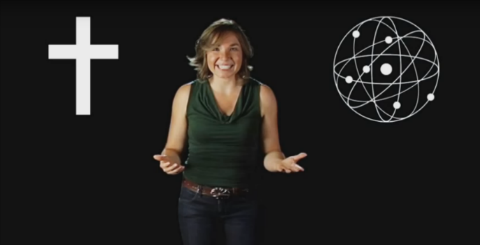
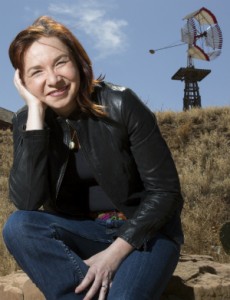
![2017_01.SIR.poster.finalproof.wifi[1]](http://www.cmu.ca/media_archive/wp-content/uploads/2017/01/2017_01.SIR_.poster.finalproof.wifi1_-194x300.jpg)
